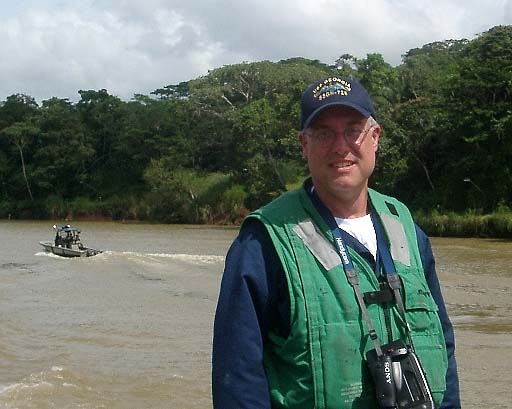Having said that, I'll start with a recent article published by the BBC News that gives a good overview of the history of these bizarre and tragic events; Heartbreak over Japan's missing.
We already know the basic outline of events. The "Dear Leader", freak Kim Jong Il confessed to the Prime Minister of Japan, Junichiro Koizumi that his government kidnapped 13 Japanese nationals and that 5 of them were still alive. There are many who hold that the number is more like 200 and that they were taken not only from Japan but from Europe.
At least four of them are said to have died in their 20s or 30s. North Korean officials say two died from gas poisoning, two in a car crash, one from drowning and one from suicide.The circumstances surrounding the deaths of some of the Japanese is suspicious.
But many people in Japan question North Korea's claims that they died due to natural disasters or natural causes.
Pyongyang said the graves of seven of the eight washed away in floods. The one set of remains Japanese officials were given have not provided any concrete information because they are said to have been cremated twice. [The story of cremated remains is, by itself, bizarre. I'll post more on that in the future. - ed.]
Five of the kidnapped survived. In October 2002 they were allowed to visit Japan, and never went back despite Pyongyang's protestations. [Kim expected Japan to return the victims to their kidnappers! - ed.] North Korea refused, however, to allow their seven North Korea-born children, and an American husband, to join them.
At a subsequent summit between Japanese Prime Minister Junichiro Koizumi and North Korean leader Kim Jong-il in May 2004, five of the children were allowed to travel to Tokyo, to be reunited with their parents.
For the families of those who allegedly did not survive, questions remain.One set of remains that have been returned to Japan are suposedly those of Megumi Yokota. DNA analysis has shown that those remains are actually those of two other people, not Megumi's. Then challenged on this the North Koreans reacted angrily. This has led many to believe that Megumi is still alive and prohibited from any contact with Japan because of her knowlege of North Korea, particularly if she were forced to train spies to be sent back into Japan.
The two Japanese who died on the same day as each other were Keiko Arimoto and Toru Ishioka. They had both vanished while studying English in Europe.
Mr Ishioka's family received a letter from him in September 1988 indicating he was living with Ms Arimoto and another abductee, Kaoru Matsuki, in North Korea.
It is now known Ms Arimoto and Mr Ishioka died less than a month after the letter was sent. Ms Arimoto's mother believes this was no coincidence.
"They must have been executed publicly because of the letter. They were used as a warning to other Japanese, to show them what would happen to them if they wrote letters to Japan," 76-year-old Kayoko Arimoto told Kyodo news agency.
A Japanese woman, Megumi Yao, has since admitted working with the North Koreans to try to ensnare Ms Arimoto and other young women.
Ms Yao was a member of a cell of Japanese radicals based in Pyongyang believed to be behind at least some of the disappearances.
Another set of remains were said to be those of Kaoru Matsuki who, as we read below, was supposed to have died at age 43. Those ashes incuded a bit of jaw bone that came from an elderly woman. Those were returned to North Korea and another set was sent to Japan. Those were found to be from four or five other people all in the same urn.
The claim by the North Koreans that all of the other graves were coincidentally washed away in floods is believe by no one.
Incredibly there are yet more bizarre lies and stories by the "Dear Freak". From the THINK (Their Home Isn't North Korea) Stories page;
In the summit meeting of 2002, NK admitted that there were 5 survivors, and said that 8 were dead. When asked for evidence of the deaths, a NK representative went somewhere to fetch the documents. When he returned in a few hours, he had papers that had date stamps in the exactly same spot, indicating that there is a technology similar to Xerox in North Korea. Also, the documents were all from the same hospital, although the 8 were supposed to have died in different parts of NK. Some of their birthdates were mixed up. NK returned an urn of remains, saying they were of Kaoru Matsuki, who had supposedly died at the age of 43. Japanese scientists later discovered that they were of an elderly woman. Kaoru was killed, NK said, in a car accident in a country where you hardly see any auto traffic. Shuichi Ichikawa drowned while swimming in the cold ocean in September when he hated water. Would a healthy young woman of 27 die of a heart attack, like NK says Rumiko Masumoto did? The cause of Keiko Arimoto's death, as they say, was carbon monoxide accident from a leaky heating system, when survivor Yukiko Hasuike confirms that the houses for Japanese abductees used no coal. And the graves of 6 of the 8 deceased were washed away by a flood, Pyongyang claims.They don't even bother to lie in a convincing way.
The Japanese government has considered imposing sanctions against the DPRK as a result of this deception. The DPRK has clearly stated that that would constitute an act of war (as if kidnapping Japanese nationals is not an act of war).
Kim Jong Il insists that these cases are closed, that there is nothing more to talk about. For the Japanese these cases are very much open as so little information has been provided by the DPRK, and what has been provided has been clearly shown to be lies.
There is very much more to write. I have only begun to report the strange, twisted, and tragic stories of the cold-hearted monsters that rule and murder people in North Korea.






No comments:
Post a Comment